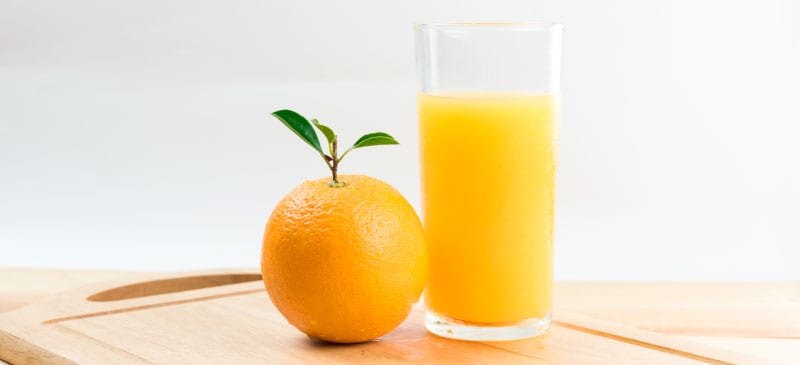This Dr. Axe content is medically reviewed or fact checked to ensure factually accurate information.
With strict editorial sourcing guidelines, we only link to academic research institutions, reputable media sites and, when research is available, medically peer-reviewed studies. Note that the numbers in parentheses (1, 2, etc.) are clickable links to these studies.
The information in our articles is NOT intended to replace a one-on-one relationship with a qualified health care professional and is not intended as medical advice.
This article is based on scientific evidence, written by experts and fact checked by our trained editorial staff. Note that the numbers in parentheses (1, 2, etc.) are clickable links to medically peer-reviewed studies.
Our team includes licensed nutritionists and dietitians, certified health education specialists, as well as certified strength and conditioning specialists, personal trainers and corrective exercise specialists. Our team aims to be not only thorough with its research, but also objective and unbiased.
The information in our articles is NOT intended to replace a one-on-one relationship with a qualified health care professional and is not intended as medical advice.
Is Orange Juice Good for You? (Benefits, Nutrition & More)
January 26, 2024

There’s something comforting and refreshing about having a glass of orange juice with breakfast. Its bright orange color and sweet flavor is a common favorite — but is orange juice good for you, and how do you know what type to drink?
Providing the benefits of orange nutrition, the fruit’s natural juice can be consumed by kids and adults to boost heart, brain and bone health. But it’s wise to wonder whether or not juice is healthy because of the commonly added ingredients. When you stick to 100% orange juice and drink it in moderation, you’re reaping the benefits of its many powerful antioxidants and micronutrients.
Orange Juice Nutrition Facts
Fresh-squeezed orange juice is rich in nutrients, including vitamin C and B vitamins, but it’s also relatively high in calories, especially for a beverage that’s low in fiber.
A one-cup serving of fresh orange juice (about 248 grams) contains roughly the following:
- Calories: 112
- Total Carbohydrates: 25.8 g
- Fiber: 0.5 g
- Sugar: 20.8 g
- Total Fat: 0.5 g
- Saturated Fat: 0.1 g
- Polyunsaturated Fat: 0.1 g
- Monounsaturated Fat: 0.1 g
- Trans Fat: 0 g
- Protein: 1.7 g
- Sodium: 2.5 mg (0.1 DV*)
- Vitamin C: 124 mg (138% DV)
- Folate: 74.4 mcg (19% DV)
- Thiamine: 0.2 mg (17% DV)
- Copper: 0.1 mg (11% DV)
- Potassium: 496 mg (11% DV)
- Pantothenic Acid: 0.5 mg (10% DV)
- Riboflavin: 0.1 mg (8% DV)
- Magnesium: 27.3 mg (7% DV)
- Niacin: 1 mg (6% DV)
- Vitamin B6: 0.1 mg (6% DV)
- Phosphorus: 42.2 mg (3% DV)
- Vitamin A: 24.8 mcg (3% DV)
*Daily Value: Percentages are based on a diet of 2,000 calories a day.
Is Orange Juice Healthy? Potential Benefits
Fresh orange juice is loaded with nutrients, including health-promoting antioxidants, but consuming too much of it does have its drawbacks. Orange juice is high in calories and sugar, and it’s not a very high-fiber food like many other fruits.
For these reasons, it should only be consumed in small amounts, like a half cup of fresh juice daily or less.
When consumed wisely, orange juice health benefits include the following:
1. Excellent Source of Vitamin C
Orange fruit is one of the top vitamin C foods. This important nutrient plays a role in protecting the heart, allowing for the proper absorption of nutrients and repairing connective tissue.
It also promotes healthy skin and collagen formation, reduces inflammation and free radical damage, and supports heart health.
Vitamin C is also well known to improve immune system function. It has been shown to help improve outcomes of respiratory illness and shorten the duration of symptoms.
2. Provides B Vitamins
Orange juice is a good source of B vitamins, including folate, thiamine, niacin and pantothenic acid. These nutrients help build strong bones, promote healthy brain function and support heart health.
Vitamins like thiamine help maintain healthy metabolism, improve mood and energy levels, and enhance learning.
3. Contains Potassium
Potassium is an essential nutrient that’s used to maintain fluid and electrolyte balance, and it is required to maintain the healthy function of several body organs, including the heart, brain and kidneys.
Potassium can help lower blood pressure, reduce the risk of stroke, and support healthy growth and development,
4. Rich in Antioxidants
Oranges are packed with health-promoting antioxidants, such as bioflavonoids hesperidin and hesperetin. In studies, these antioxidants have been shown to help neutralize free radicals, reduce oxidative damage to cells and fight inflammation.
One report indicates that “the content of flavonoids in a glass of orange juice is about 60 percent of daily recommended intake of these substances.”
5. May Improve Heart Health
Studies indicate that consuming citrus fruits can help protect the body from heart disease and lower LDL cholesterol levels. One study published in the Journal of Epidemiology found that frequent intake of citrus fruit reduced the incidence of cardiovascular disease, especially stroke, in both men and women.
In fact, a 2022 systematic review and meta-analysis of randomized, controlled trials published in Food & Function found that the research “demonstrates the beneficial effects of chronic OJ consumption on blood pressure and HDL-C in overweight and obese adults.”
6. May Boost Gut Health
A 2019 study published in the Journal of Medicinal Food suggests that drinking orange juice can positively affect the composition and metabolic activity of your microbiota by increasing beneficial bacteria. This research, conducted on healthy women, also found that drinking orange juice also improved cholesterol levels and insulin sensitivity.
Orange juice has even displayed a prebiotic effect in research, and its flavonoid content appears to benefit the gut microbiome in young adults with depressive symptoms.
7. Reduces Inflammation
Research published in 2022 found that consuming 100 percent orange juice, without added sugars, was able to positively impact inflammatory systems and reduce inflammation among healthy adult participants.
Risks and Side Effects
Orange juice is naturally high in calories and sugar, and when even more sugar is added to it in store-bought products, it can increase your risk of increased blood sugar levels and weight gain.
When drinking orange juice, practice portion control, and stick to about half a cup or less. Opt for fresh-squeezed orange juice, and avoid products that are made with added sugars and other potentially harmful ingredients.
It is possible to have a citrus fruit allergy, which can lead to allergy symptoms after consuming orange juice. If you experience swelling, redness or trouble breathing after drinking orange juice, discontinue use immediately, and speak to your doctor.
Also keep in mind that orange juice is very acidic and may aggravate acid reflux symptoms and heartburn for some people. If drinking orange juice causes belching, nausea or a burning feeling in your chest, stop drinking it.
How to Make Orange Juice (Recipes)
If you’re looking for the healthiest type of orange juice, choose fresh-squeezed options. These are available in some health food and grocery stores, or the juice can be made at home for a much lower cost.
To make orange juice at home, you can use a juicer and add the peeled fruit. That’s the easiest method, but if you don’t have a juicer, you can use a blender.
Here’s how:
- Remove the white layers, and separate the segments.
- Then add the pieces to a blender, and blend only until the juices come out while the fruit is still pretty pulpy.
- Use a strainer to separate the juice entirely.
- You can also use a handheld juicer by cutting the orange in half, placing it over the juicer, and pressing down while you move it back and forth.
If you’re buying orange juice from a store, opt for a product that is 100 percent orange juice and has no added sugar. Many orange juice products in the grocery store are fortified, containing added calcium and vitamin D.
Be cautious of orange juice concentrate because some brands contain barely any real orange juice. They may have added sugars and even colorings to be used in punches and cocktails.
Want to get creative with orange juice? Try this Orange Carrot Ginger Juice recipe that’s packed with vitamin C and provides carrots and cucumber. It’s a tasty and easy way to get kids to consume important nutrients.
Conclusion
- Fresh orange juice is loaded with nutrients, including vitamin C and health-promoting antioxidants, but consuming too much of it does have its drawbacks. It’s high in calories and sugar and should only be consumed in moderation.
- Stick to about half a glass of orange juice per day or less in order to avoid blood sugar spikes and excessive calorie intake.
- The best type of orange juice is 100% pure juice, without added sugars or flavors. You can make it at home with a juicer, blender or hand juicer, or look for fresh-squeezed juices at your local health food store.


